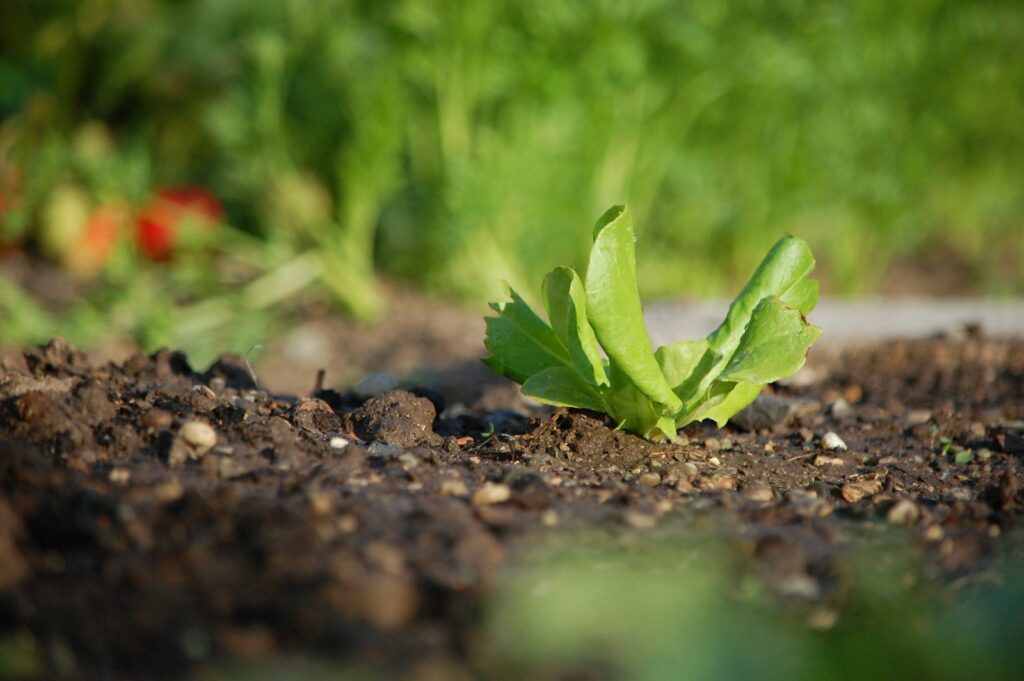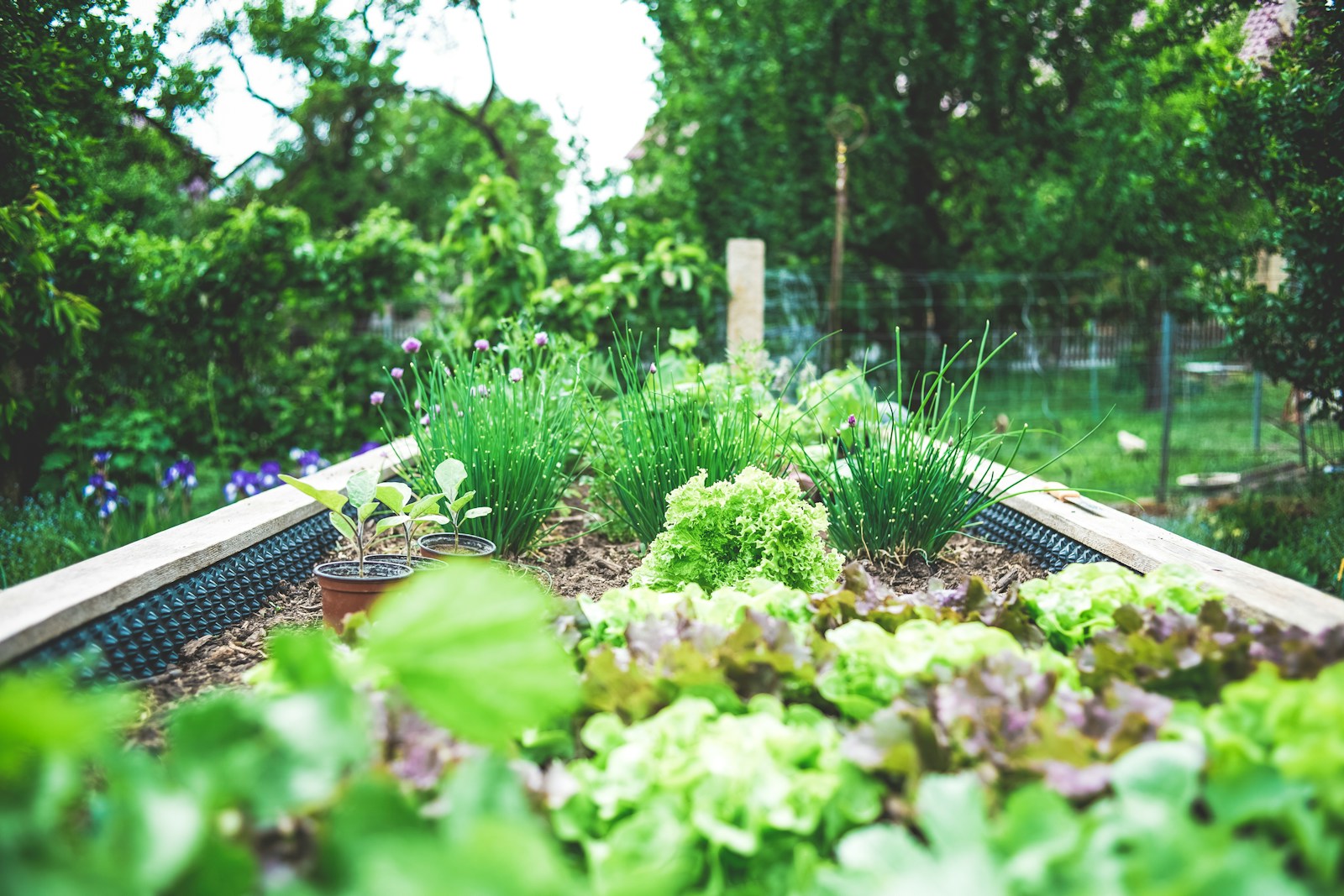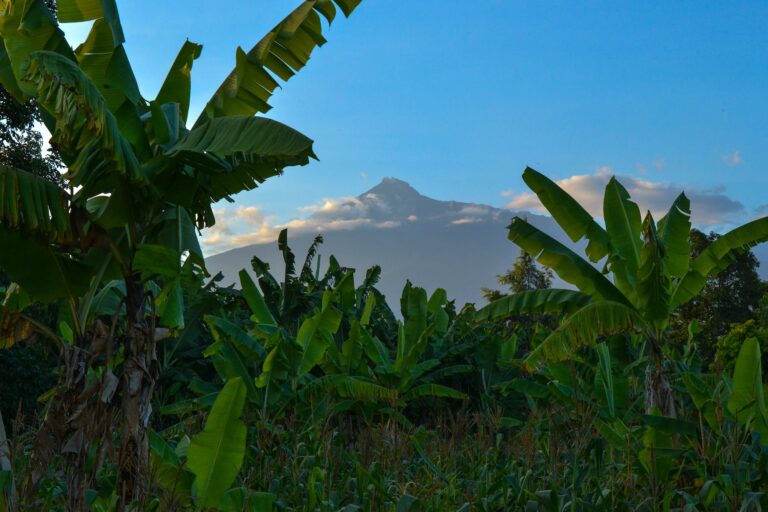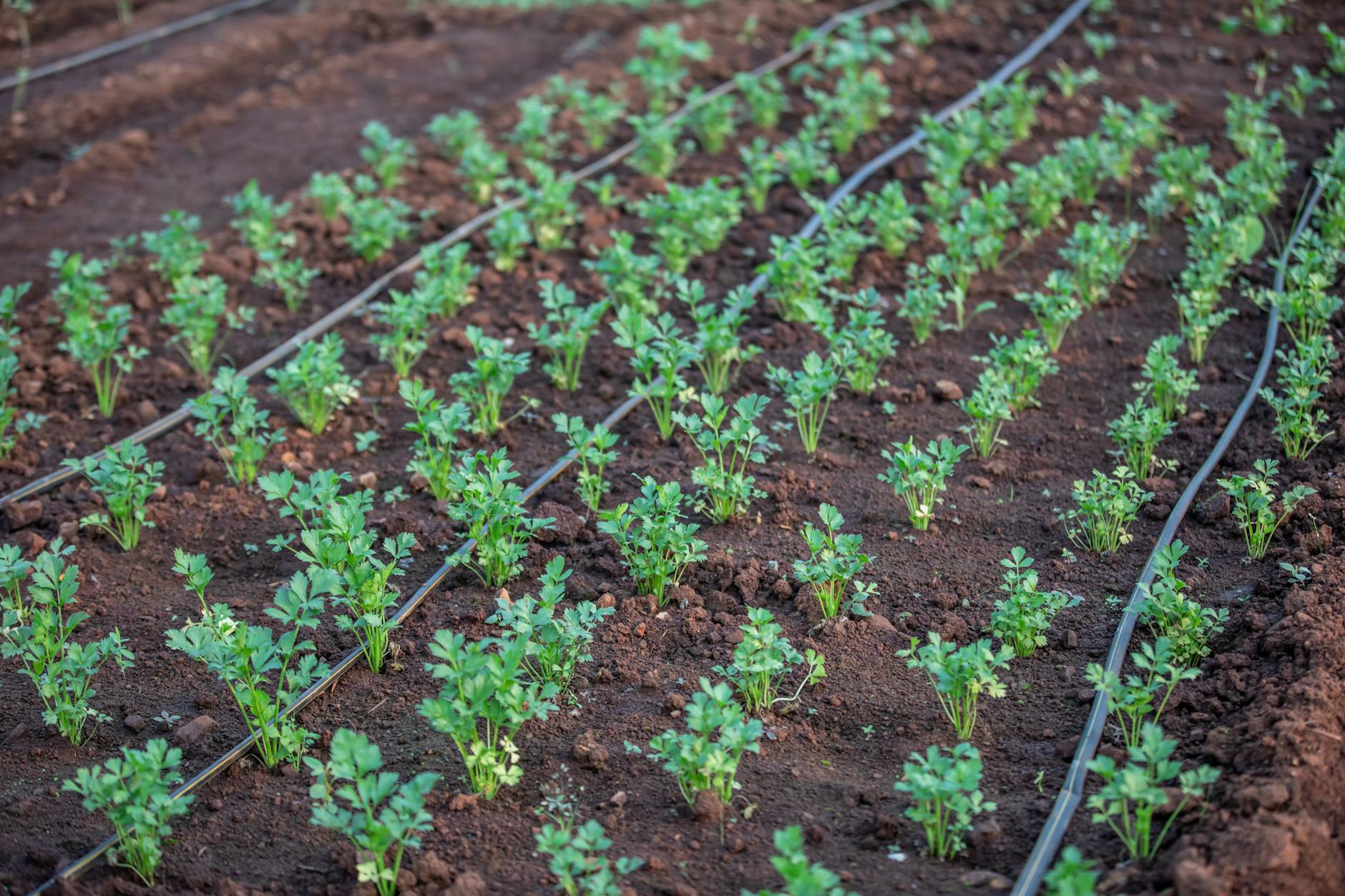10 Sustainable Organic Farming Tips for Kenya
They say, ‘You reap what you sow.’ And when it comes to sustainable organic farming in Kenya, this adage couldn’t be more true. But where do you start? How can you ensure that your farming practices are not only environmentally friendly but also economically viable?
In this discussion, we will explore ten practical tips that will help you achieve both sustainability and success in your organic farming endeavors. From enhancing soil health to harnessing renewable energy, these tips will leave you with a roadmap towards a greener and more prosperous future.
Soil Health

To ensure the success of your organic farm in Kenya, it’s crucial to prioritize the health of your soil. One of the key aspects of soil health is soil erosion prevention. By implementing proper soil conservation practices, you can prevent the loss of valuable topsoil and ensure the long-term sustainability of your farm.
Soil erosion occurs when wind or water removes the top layer of soil, which is rich in nutrients and organic matter. This can lead to decreased soil fertility and reduced crop yields. To prevent soil erosion, you can employ various techniques such as contour plowing, terracing, and planting cover crops. These practices help to slow down the flow of water and prevent it from carrying away the soil.
Another important aspect of soil health is soil testing and analysis. By regularly testing your soil, you can determine its nutrient levels and pH balance. This information is crucial for making informed decisions about fertilization and soil amendments. It allows you to provide your plants with the necessary nutrients they need to thrive, while also avoiding overuse of fertilizers, which can be harmful to the environment.
Crop Rotation
Maintaining soil health is crucial for the success of your organic farm in Kenya. One effective way to achieve this is through implementing a crop rotation system.
Crop rotation refers to the practice of growing different crops in a planned sequence on the same piece of land. This technique offers numerous benefits for your farm.
Firstly, crop rotation helps to control pests and diseases. By alternating crops, you disrupt the life cycles of pests and diseases, reducing their population and preventing the build-up of specific pathogens in the soil. This natural pest management strategy reduces the need for chemical pesticides, promoting a healthier and more sustainable farming system.
Secondly, crop rotation enhances soil fertility. Different crops have different nutrient requirements and contribute varying amounts of organic matter to the soil. By rotating crops, you can balance nutrient utilization and replenish soil fertility naturally. For example, leguminous crops like beans or peas fix atmospheric nitrogen, enriching the soil for subsequent crops.
Lastly, crop rotation reduces weed pressure. Some crops are more effective at suppressing weeds than others. By rotating crops, you can interrupt the life cycles of weeds, reducing their growth and seed production. This minimizes the need for manual weeding or herbicide use, saving you time and money.
To implement crop rotation effectively, plan your crop sequence carefully. Consider the nutrient needs, growth habits, and pest susceptibility of each crop. Rotate crops with different root systems, such as deep-rooted and shallow-rooted crops, to improve soil structure and prevent soil erosion.
Integrated Pest Management
Integrated Pest Management (IPM) is a proactive approach to pest control that focuses on minimizing the use of chemical pesticides while maximizing the use of natural pest control methods. In Kenya, where sustainable organic farming is gaining momentum, IPM techniques are essential for maintaining crop health and productivity.
One of the key components of IPM is monitoring and identifying pests accurately. By regularly inspecting your crops, you can detect pest infestations early on and take appropriate action. This could include manually removing pests, such as picking off caterpillars or using sticky traps to catch flying insects.
Another important aspect of IPM is promoting biodiversity on your farm. By attracting beneficial insects and birds, you can create a natural balance that helps control pest populations. Planting flowering plants and maintaining hedgerows can provide habitat for these beneficial organisms.
Crop rotation is another effective IPM technique. By rotating crops, you disrupt the life cycle of pests, making it harder for them to establish and survive. Additionally, certain crops can naturally repel pests, acting as a natural form of pest control.
Lastly, using organic pesticides and biological controls can be a part of an integrated pest management strategy. Organic pesticides, derived from natural sources, are less harmful to the environment and beneficial organisms. Biological controls involve introducing natural enemies of pests, such as predatory insects or nematodes, to keep pest populations in check.
Water Conservation
Are you looking for ways to conserve water on your organic farm in Kenya? Well, you’re in luck! There are several effective techniques you can implement.
One option is installing drip irrigation systems. These systems deliver water directly to the plant roots, minimizing wastage.
Another technique is rainwater harvesting. By collecting and storing rainwater for irrigation purposes, you can reduce your reliance on other water sources.
Lastly, don’t forget about mulching. This practice helps retain moisture in the soil and reduces evaporation.
Drip Irrigation Systems
To maximize water conservation in organic farming, consider implementing a highly efficient drip irrigation system. Drip irrigation systems are designed to deliver water directly to the plant’s root zone, reducing water loss due to evaporation and runoff. These systems work by slowly releasing water through small emitters or drippers, ensuring that plants receive a consistent and targeted water supply.
Regular drip irrigation maintenance is crucial to optimize water usage. This includes checking for clogged emitters, adjusting water pressure, and monitoring for leaks. By using a drip irrigation system, you can significantly reduce water waste and promote a healthier, more sustainable farming practice.
Not only will you conserve water, but you’ll also save on labor and energy costs. So, why not take advantage of this efficient irrigation method and make a positive impact on the environment?
Rainwater Harvesting
Maximize water conservation in your organic farming practices by implementing rainwater harvesting techniques. By capturing and storing rainwater, you can ensure a sustainable water supply for your crops, reduce reliance on external sources, and save money on water bills.
Here are some effective rainwater harvesting techniques and storage methods to consider:
- Rainwater Collection System:
- Install a gutter system on your farm buildings to direct rainwater into storage tanks.
- Use downspouts and filters to remove debris and prevent clogging.
- Storage Methods:
- Invest in large water storage tanks or barrels to collect and store rainwater.
- Consider using underground tanks to save space and protect against evaporation.
Rainwater harvesting not only conserves water but also helps prevent soil erosion and improves crop health. Implement these techniques to make the most of nature’s gift and ensure a sustainable future for your organic farm.
Mulching Techniques
Implementing mulching techniques in your organic farming practices can significantly contribute to water conservation. Mulching involves covering the soil surface with a layer of organic or inorganic materials to retain moisture, reduce evaporation, and control weed growth. The benefits of mulching go beyond water conservation, as it also helps improve soil fertility, prevent erosion, and regulate soil temperature. When choosing mulching materials, consider using organic options such as straw, leaves, grass clippings, or compost. These materials not only provide the necessary coverage but also break down over time, adding valuable nutrients to the soil. Inorganic options like plastic or fabric mulch can also be used, but they may not provide the same benefits for soil health. Incorporating mulching techniques into your farming practices can not only save water but also promote sustainable and productive agriculture.
| Mulching Benefits | Mulching Materials |
|---|---|
| Retains moisture | Organic options: |
| Reduces evaporation | – Straw |
| Controls weed growth | – Leaves |
| Improves soil fertility | – Grass clippings |
| Prevents erosion | – Compost |
| Regulates soil temperature | Inorganic options: |
| – Plastic | |
| – Fabric |
Organic Fertilizers
Using organic fertilizers is an effective way to enhance soil fertility and promote healthy plant growth in organic farming. Organic fertilizers are derived from natural sources, such as animal manure, compost, and plant materials. They provide essential nutrients to plants while improving soil structure and increasing its water-holding capacity.
Here are some tips for sourcing and applying organic fertilizers effectively:
- Organic Fertilizer Sourcing:
- Look for local sources of organic fertilizers, such as nearby farms or composting facilities. They often offer high-quality products at affordable prices.
- Consider producing your own organic fertilizers by composting kitchen scraps, yard waste, and livestock manure. This not only reduces waste but also ensures the availability of nutrient-rich fertilizers.
- Effective Application Methods:
- Before applying organic fertilizers, conduct a soil test to determine the nutrient needs of your crops. This will help you select the right type and amount of fertilizer.
- Apply organic fertilizers evenly across the field or garden to ensure uniform nutrient distribution. Use a spreader or apply by hand, but make sure to follow the recommended application rates.
- Incorporate the organic fertilizers into the soil either by tilling or by top-dressing and then watering thoroughly. This helps to prevent nutrient runoff and maximizes nutrient absorption by plants.
Composting
Ready to take your organic farming to the next level? Let’s talk about composting, a simple yet powerful technique that can benefit your farm in multiple ways.
Discover the benefits of composting, from enriching your soil with essential nutrients to improving its structure and water-holding capacity.
Learn different composting techniques to find the one that suits your farm’s needs, and find out how to effectively use compost to maximize your crop yields.
Get ready to unlock the potential of composting and see your farm thrive.
Benefits of Composting
Why is composting an essential practice for organic farmers in Kenya?
Composting offers numerous benefits that contribute to sustainable and successful organic farming. Here are two key reasons why composting is crucial:
- Nutrient-rich soil: Composting allows farmers to create a nutrient-rich soil amendment, known as compost, by decomposing organic matter such as kitchen scraps, yard waste, and crop residues. This compost is then added to the soil, providing essential nutrients like nitrogen, phosphorous, and potassium. These nutrients are vital for plant growth and help improve soil fertility.
- Enhanced soil structure: Composting improves soil structure by adding organic matter. This helps to create a loose, crumbly soil texture that retains moisture and allows for better root penetration. Additionally, composting increases the soil’s ability to hold nutrients and improves its water-holding capacity. This, in turn, reduces the need for synthetic fertilizers and irrigation, making organic farming more sustainable and cost-effective.
Composting Techniques
To master the art of composting, organic farmers in Kenya employ various techniques to ensure the decomposition of organic matter into nutrient-rich compost.
Composting offers numerous benefits for sustainable agriculture, including improved soil fertility, increased water retention, and reduced reliance on synthetic fertilizers.
One commonly used technique is the ‘pile method,’ where organic waste materials like kitchen scraps, yard trimmings, and livestock manure are layered and left to decompose naturally. Turning the pile regularly helps aerate the compost and speed up the decomposition process.
Another technique is vermicomposting, which involves using worms to break down organic waste. The worms consume the waste and produce nutrient-rich castings, which can then be used as compost.
Using Compost in Farming
Using compost in farming is an essential practice for organic farmers in Kenya to maximize soil fertility and promote sustainable agriculture. Compost is a rich source of nutrients and organic matter that helps improve soil structure, water retention, and nutrient availability.
Here are two effective ways to utilize compost in your farming practices:
- Compost Tea: This liquid fertilizer is made by steeping compost in water. It can be sprayed on plants or applied to the soil to provide a nutrient boost and enhance plant health.
- Vermicomposting: This method involves using worms to break down organic waste into nutrient-rich compost. By introducing red worms to your compost pile, you can speed up the decomposition process and create high-quality compost.
Agroforestry
Agroforestry offers a sustainable and innovative approach to organic farming in Kenya. By integrating trees and shrubs with crops and livestock, agroforestry provides numerous benefits for farmers and the environment.
One of the key advantages of agroforestry is its ability to improve soil fertility. Trees absorb nutrients from deep within the soil and bring them to the surface through their fallen leaves, which act as natural fertilizers. This reduces the need for chemical fertilizers and enhances the long-term productivity of the land.
Agroforestry also helps in conserving water. The presence of trees provides shade, reducing evaporation and maintaining moisture in the soil. Additionally, the deep root systems of trees prevent soil erosion, ensuring that valuable topsoil isn’t washed away during heavy rains.
Another benefit of agroforestry is its ability to diversify income sources. Farmers can harvest fruits, nuts, and timber from the trees, providing additional sources of revenue. The integration of livestock within the agroforestry system allows for the production of meat, milk, and other animal products.
To implement agroforestry techniques, farmers can choose from various approaches such as alley cropping, windbreaks, and silvopasture. Alley cropping involves planting rows of trees between crop rows, providing shade and acting as windbreaks. Windbreaks are rows of trees planted along the edges of a farm to protect crops from strong winds. Silvopasture integrates trees, forage crops, and livestock, allowing animals to graze while benefiting from shade and forage.
Biodiversity Preservation
Preserving biodiversity is crucial for the sustainability of organic farming in Kenya. By implementing effective conservation strategies, you can protect the diverse range of species and ecosystems that exist on your farm.
This not only enhances the natural balance and resilience of your agricultural system, but also contributes to the overall health and productivity of your land.
Conservation Strategies
To effectively preserve and enhance biodiversity on organic farms in Kenya, implementing conservation strategies is essential. Conservation education plays a vital role in raising awareness among farmers about the importance of biodiversity preservation. By providing farmers with knowledge about sustainable farming techniques, they can minimize the negative impact on the environment and promote the coexistence of various species.
Some key strategies to consider include:
- Habitat preservation:
- Creating and protecting natural habitats within the farm, such as wetlands or grasslands, to support diverse ecosystems.
- Planting native trees and shrubs to provide food and shelter for wildlife.
- Integrated pest management:
- Encouraging the use of biological controls, such as beneficial insects, to reduce the reliance on chemical pesticides.
- Implementing crop rotation and companion planting to prevent pest outbreaks and maintain a balanced ecosystem.
Ecosystem Protection
By implementing effective conservation strategies, organic farmers in Kenya can actively contribute to the protection of ecosystems and the preservation of biodiversity. Ecosystem restoration is a crucial aspect of sustainable agriculture, as it focuses on revitalizing and conserving natural habitats.
Organic farmers can play a significant role in this process by adopting practices that promote biodiversity preservation. For instance, they can create on-farm habitats, such as hedgerows and ponds, to provide shelter and food for various species. Additionally, organic farmers can prioritize crop rotation and intercropping, which enhance soil health and reduce the need for synthetic fertilizers and pesticides.
Renewable Energy
Implementing renewable energy practices on your organic farm in Kenya can lead to numerous benefits for both your farm and the environment. By harnessing sustainable energy sources, you can reduce your carbon footprint, decrease dependence on fossil fuels, and save on energy costs.
Here are some key benefits of renewable energy implementation:
- Environmental Benefits:
- Reduced greenhouse gas emissions: Renewable energy sources such as solar and wind power produce little to no carbon emissions, helping to combat climate change and air pollution.
- Conservation of natural resources: By utilizing renewable energy, you can reduce the depletion of finite resources like coal and oil, ensuring their availability for future generations.
- Farm Benefits:
- Cost savings: Once installed, renewable energy systems require minimal maintenance and can significantly lower your electricity bills.
- Energy independence: By generating your own power, you can become less reliant on the grid, ensuring a stable energy supply for your farm operations.
Investing in renewable energy not only helps protect the environment but also makes economic sense. Government incentives and grants are available to support the installation of solar panels, wind turbines, or biogas digesters on your farm. By incorporating sustainable energy practices, you can contribute to a greener future while reaping the benefits of reduced costs and increased self-sufficiency.
Market Opportunities
As an organic farmer in Kenya, you’ve already taken significant steps towards sustainability by implementing renewable energy practices on your farm. Now, let’s explore the exciting market opportunities that await you in this thriving industry.
To make the most of these opportunities, it’s important to conduct a thorough market analysis. This will help you understand the demand for organic products in Kenya and identify potential niches that you can tap into. Look at factors such as the size of the market, the growth rate, and the competition. This information will guide your decision-making and help you develop effective marketing strategies.
Consumer trends play a crucial role in the organic farming industry. More and more Kenyan consumers are becoming health-conscious and are willing to pay a premium for organic products. They’re concerned about the harmful effects of synthetic chemicals and are seeking alternatives that are safe for themselves and the environment. By aligning your farming practices with these consumer trends, you can attract a loyal customer base and secure a sustainable market for your products.
In addition to the domestic market, there’s also a growing demand for organic products internationally. Kenya has access to export markets such as Europe and the United States, where organic products are highly valued. By meeting the strict organic certification standards and establishing strong relationships with international buyers, you can tap into these lucrative markets and expand your business beyond borders.
The market opportunities for organic farming in Kenya are vast and promising. By conducting a thorough market analysis and staying attuned to consumer trends, you can position yourself for success in this thriving industry. So, seize the opportunity and make your mark in the organic farming market.



